by Jacob Baadsgaard • December 26, 2017
What is SEM? Search Engine Marketing Explained
Tired of waiting for your SEO efforts to pay off? It might be time consider search engine marketing.
It can be impossibly frustrating to put a ton of time and money into building your brand and its site, only to realize that you aren’t even ranking on the first page yet…or the first three pages, for that matter.
Unfortunately, while time, great technical knowledge, and some in-depth keyword research will eventually allow you to climb through the search engine results pages (SERPs), good search engine optimization (SEO) takes time. The good news is, search engine marketing (SEM) search engine marketing can help you skip a few steps and a lot of time.
In this post, we’re going to take a close look at search engine marketing, how it’s different from SEO, and how to get started.
Search Engine Marketing vs SEO
SEO and SEM: what’s the difference?
Until relatively recently, search engine optimization used to fall under the umbrella term “search engine marketing,” but both have become so complex that SEM and SEO now exist as two separate (but closely related) entities.
Search engine optimization is focused on improving your site in order to increase your organic search engine rankings. SEO primarily revolves around placing keywords strategically throughout the site, link building, establishing site authority and using meta data that’s crawlable by Google.
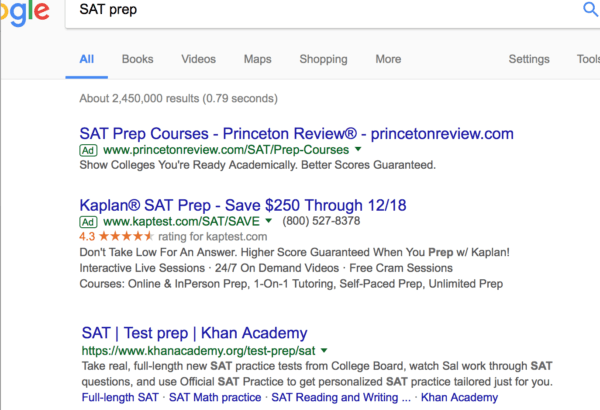
SEM marketing will position you in the “Ad” slots, while SEO will help you rank well organically.
With search engine marketing, on the other hand, you pay to play on the SERPs. Essentially, you pay to show your ads to users who are actively searching for the keywords you’re targeting. You don’t need a high site authority in order to be able to show up on the first page of Google when you’re willing to pay for it.
Do I need Both SEM and SEO?
Do you absolutely need both SEM and SEO? No. But will you end up getting a lot more leads and sales if you implement both? Absolutely yes.
It’s always a good idea to optimize your site according to SEO best practices. You want to lay out a solid foundation that will put you as far up in the SERPs organically as possible. After all, SEO clicks are basically free—why wouldn’t you want as many of those as you can get?
Utilizing search engine marketing, however, can significantly speed up your ability to build your brand and your client base. It will put you in front of target audiences who are actively searching for products, services, and brands just like yours. You want to appear at the very top of their searches, or someone else will get their sale.
Search Engine Marketing Platforms
Most search engines have an ad platform for search engine marketing. The most well-known (and effective) platform to use is Google AdWords. Bing Ads and Yahoo Search Ads are also both SEM platforms that you can use.
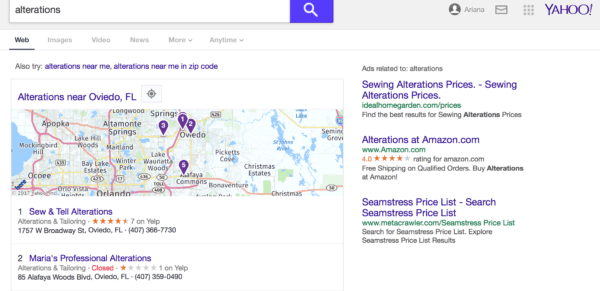
It’s important to note that—while all SEM platforms utilize a pay-per-click (PPC) advertising model—not all PPC is SEM.
Facebook Ads and other social media ad platforms, for example, are pay-per-click platforms that do not fall under the SEM category. Instead of showing your ads to people who are searching for similar content like search ads do, social media sites introduce your product to people who happen to be just browsing through their feeds. These are two very, very different types of online advertising.
Do Keywords Still Matter for SEM?
Keywords are everything for SEM, just as they are for SEO. When you run SEM campaigns, you choose keywords that determine which ads will show up on which searches.
As a result, in-depth keyword research is the key to running a successful search engine marketing campaign. You’ll want to run your campaigns targeting the exact right terms…or you’ll miss your target audience.
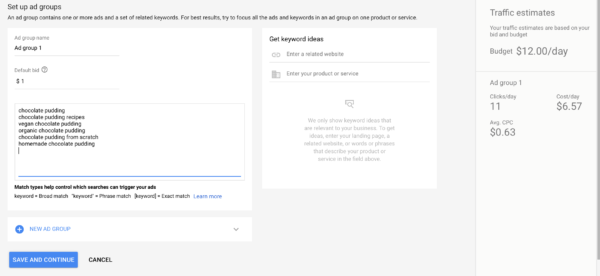
Let’s say, for example, that you run a construction business that helps with home repairs after natural disasters and you want to advertise that service. The official term for the service is “fire restoration,” but keyword research may indicate that customers in your area search instead for “fire repair” or “repair fire damage to house.” By not optimizing for these two keywords, you’ll lose out on a lot of traffic and potential customers, even if “fire restoration” is technically more correct.
Which Keywords Should I Choose?
Choosing the right keywords can (and likely will) make or break your search engine marketing campaigns. You want to shoot for keywords that have high volume and low competition. This will increase the likelihood that your ad will rank well and bring your cost-per-click (CPC) down.
Fortunately, you don’t have to blindly pick keywords and wait for the results to come in before you can figure out which keywords have adequate volume and an acceptable CPC. There are several keyword research tools you can use to do SEM keyword research (click the link for more info on how to do keyword research for search engine marketing).
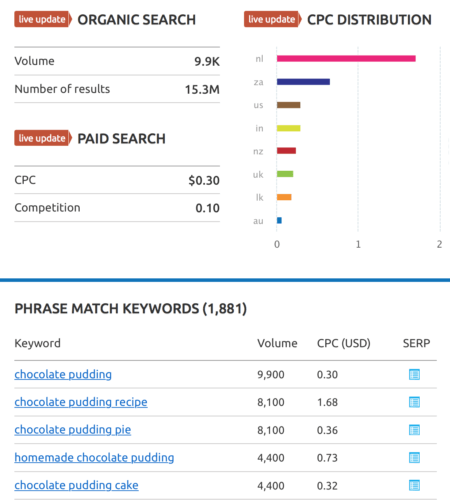
In addition to giving you insight into the search volume and competition level of keywords, most keyword research tools will also give you detailed information about the average or current estimated CPC for particular keywords are. This is particularly important for businesses with smaller ad budgets and this feature allows you to predict whether certain keywords will be truly beneficial to your ad campaigns or if they’ll cost too much.
How Much Should I Bid?
While picking the right keywords is important, if you want your ads to rank well and produce profitable results, you need an effective bidding strategy.
All search engine marketing platforms work on a bidding system, where advertisers place bids on certain keywords and audiences. Whoever bids the most, ranks the highest. The good news is, you only have to pay enough to outbid the next highest bid, so even if you bid $1,000 and the next lowest competitor bids $11.74, you’ll only have to pay $11.75.

However, while bidding $1,000 on every keyword and ranking #1 for every relevant search sounds nice in theory, most businesses have to play a balancing game between ranking higher and paying too much for clicks. After all, if it costs $17.56 to rank in position #1, but you can only afford to pay $5.00 per click, bidding $1,000 on a keyword to guarantee yourself the #1 position would be a great way to bid yourself out of business.
Fortunately, even if you can’t afford the CPC of position #1, most SEM platforms take the quality of your ads into account, which can help you outrank the competition—even if you can’t afford to outbid them.
For example, Google gives each ad a quality score and takes that quality score into account when calculating where your ad ranks:
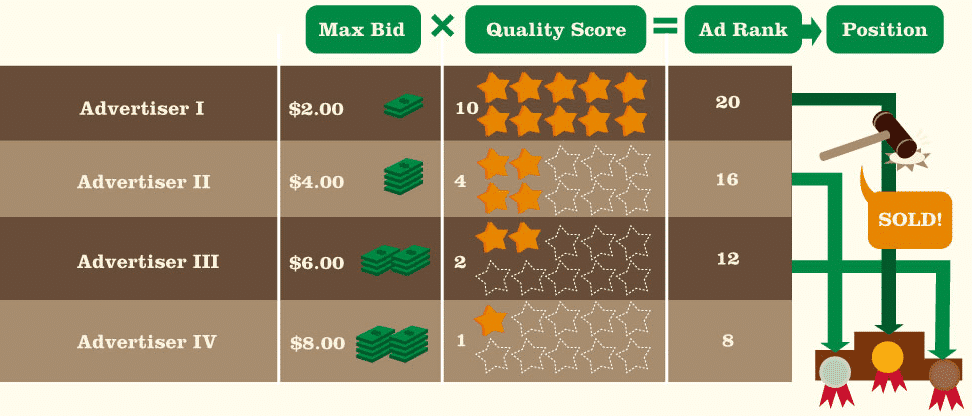
To calculate your quality score, most SEM platforms look at things like how strong your landing page is and how relevant your ad is to the keywords you’ve selected. Since a lower required CPC could mean you can pay for more ad placements in the long run, optimizing your quality score can help your campaigns out a lot.
Final Thoughts
Because search engine marketing puts you directly in front of users who are actively searching for what you have to offer, SEM can be a great investment for your business. Outranking every organic result your low-funnel potential customers see is an enormous advantage, even if you do have to pay for every click.
Want to run SEM campaigns but not sure where to start? Get in touch with us and see what we can do for you here at Disruptive Advertising.
What do you think? Have you invested in search engine marketing? Which SEM platforms have you used? What best practices work for you? Share your thoughts, knowledge, and experience in the comments below!





